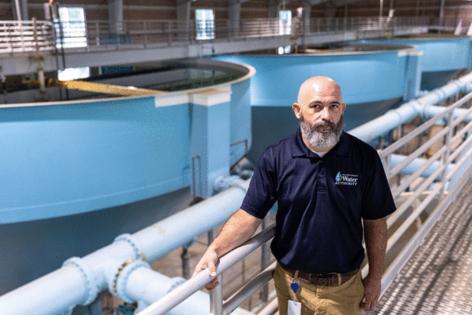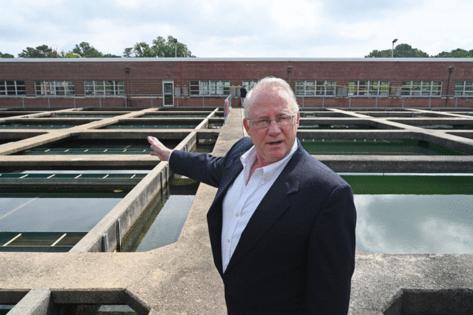EPA sets first-ever limits on 'forever chemicals' in drinking water
Published in Science & Technology News
The U.S. government unveiled the first-ever legal limits on toxic “forever chemicals” in drinking water Wednesday, a long-awaited step to crack down on the manmade compounds, which have been linked to cancers and have been found in the water supplies of hundreds of cities, including some in Georgia.
As the new standards phase in, water systems around the country will need to ensure that concentrations of some of the chemicals in drinking water they provide are near zero. And removing enough of the persistent toxins to get there could force costly upgrades at many water systems, with the total tab nationwide expected to run into the billions of dollars.
The final regulations on forever chemicals — also known as PFAS, the acronym for per- and polyfluoroalkyl substances — were announced by the Environmental Protection Agency (EPA).
Chemical-makers including DuPont and companies spun out of the chemical giant and others like 3M have agreed to pay billions to settle litigation filed by local governments related to contamination, but those funds are a proverbial drop in the bucket to the likely cost of eliminating the toxins.
On Wednesday, the agency said it is also making available an additional $1 billion from 2021′s Bipartisan Infrastructure Law to help public water systems and private well owners address PFAS. The funding is part of a $9 billion package included in the legislation to clean-up PFAS, the largest-ever federal investment in tackling the contaminants.
In a statement, EPA Administrator Michael Regan said addressing PFAS pollution is a top priority of President Joe Biden’s administration.
“Drinking water contaminated with PFAS has plagued communities across this country for too long,” Regan said in a statement. “Today, I am proud to finalize this critical piece of our (PFAS Strategic) Roadmap, and in doing so, save thousands of lives and help ensure our children grow up healthier.”
There are no federal limits on production of PFAS, which have been used for decades in numerous consumer and industrial products, from nonstick pans to firefighting foam. A handful of states have recently passed their own restrictions on adding PFAS to certain products, but Georgia has not. Earlier this year, the FDA announced PFAS was no longer being sold by manufacturers for food packaging, part of a “voluntary market phase-out.”
A growing body of evidence has tied exposure to even minuscule concentrations of PFAS to a host of serious health conditions: From fertility problems and increased risk of prostate, kidney and testicular cancer in adults, to developmental delays and depressed vaccine response in children. The EPA says the new rules will reduce PFAS exposure for approximately 100 million people, while preventing thousands of deaths and cases of serious illness.
Some companies that make PFAS have stopped producing certain types of the chemicals, including some covered by the new drinking water standards. Still, the notoriously persistent chemicals don’t break down in nature, and can be present at dangerous levels in water and soil even decades after they were phased out. Some of the newer compounds developed as replacements carry similar risks, public health advocates say.
...continued
©2024 The Atlanta Journal-Constitution. Visit at ajc.com. Distributed by Tribune Content Agency, LLC.










Comments